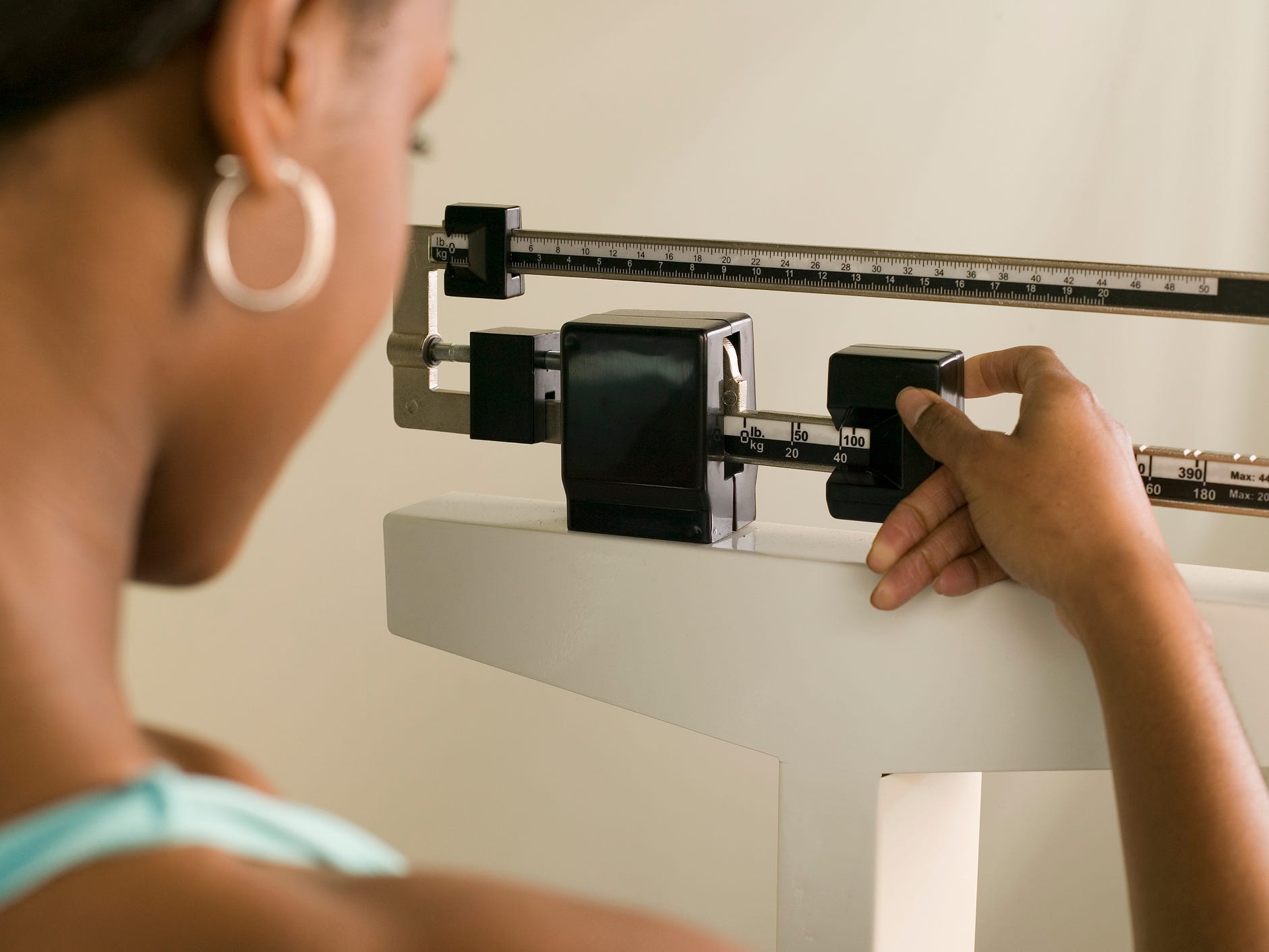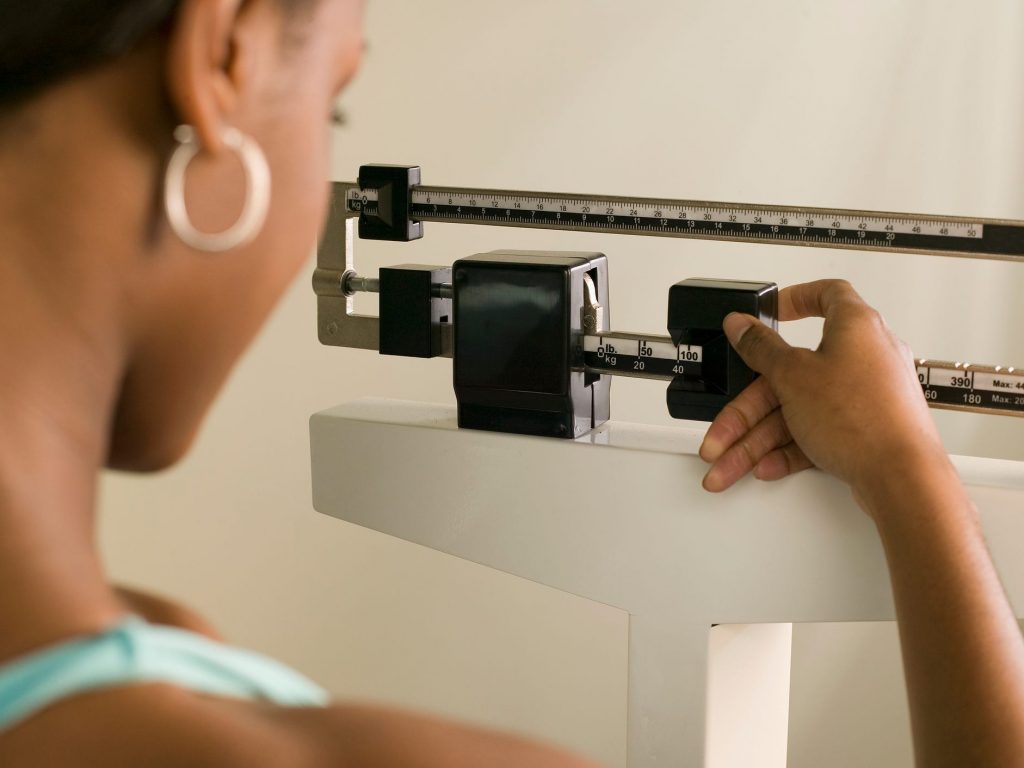
- When losing weight, it's normal to experience plateaus of slow or no progress, experts say.
- Instead of slashing calories to re-start weight loss, focus on getting enough sleep and protein.
- Staying patient and focusing on progress beyond weight can help you make sustainable changes, a dietitian said.
- Visit Insider's homepage for more stories.
Trying to lose weight can involve frustrating stalls in progress, but you don't have to panic if the number on the scale won't budge, experts say.
For successful weight loss, aim for slow and steady progress by making small, sustainable changes to your routine.
Staying consistent, and not being too hard on yourself can help you stay on track with your weight loss, Bonnie Taub-Dix, registered dietitian nutritionist, told Insider. Prioritizing sleep and protein are also key to restarting weight loss efforts, according to a personal trainer.
Be patient
People often see quick initial weight loss when starting a diet program, followed by a plateau, according to Taub-Dix, author of Read It Before You Eat It – Taking You from Label to Table.
"Once they settle in, weight doesn't come off as quickly," Taub-Dix told Insider.
She said there's no need to make dramatic calorie cuts or tighten up your diet if you stop shedding pounds.
"You don't have to be more strict, you have to be more patient," she said.
Focus on overall nutrition, not just calories or carbs
To lose weight, it's necessary to have a calorie deficit, eating less than you burn off on average.
A helpful tool is protein, a macronutrient that takes more energy to digest than carbs or fat, and can keep you feeling full for longer.
"Getting enough protein is really important to keep your metabolism going," Noam Tamir, the founder and CEO of TS Fitness in New York City, told Insider.
To feel your best while losing weight, it's also important to have a balance of nutritious foods like fruits and veggies, protein and fiber sources, along with foods you enjoy, Taub-Dix said.
"Diet is a 'way' of life not a 'weigh' of life. It needs to be sustainable," she said.
Go for a walk
Finding enjoyable ways to move your body can also boost weight loss, according to Taub-Dix.
You may not have to add more hours in the gym - if you already exercise, trying to squeeze in more workouts may not lead to weight loss and could cause burnout.
Instead, opt for low-impact ways of moving your body like walking, biking, or dancing.
"Even small changes can make a difference," she said.
You'll still need to dial in your diet if you want to keep losing weight, but research shows regular exercise helps keep the weight off once you've lost it, and has plenty of benefits that have nothing to do with weight loss, like more energy and better health, too.
Get enough sleep
One underrated factor in weight loss is giving your body enough rest to recover from daily stresses like exercise and burning fat, Tamir said.
"For fat loss, sleep is huge and recovery is huge," he said.
A chronic lack of sleep can stall your weight loss by ramping up your appetite, research suggests, causing you to eat more than you might otherwise. Too little rest also spikes levels of cortisol, the stress hormone, too much of which is linked to symptoms like weight gain, fatigue, and digestive issues.
Celebrate progress beyond weight loss, too
To stay motivated in your health efforts, look for accomplishments to be proud of regardless of what the scale says.
Signs of progress may include more confidence and energy, or in the gym, you might notice you're able to lift more weight, run faster or farther, or keep up with more advanced exercises.
"Don't confuse stability with stagnation. Stagnation is not progressing. Stability is about appreciating where you are, appreciating your body at any stage," Taub-Dix said.
